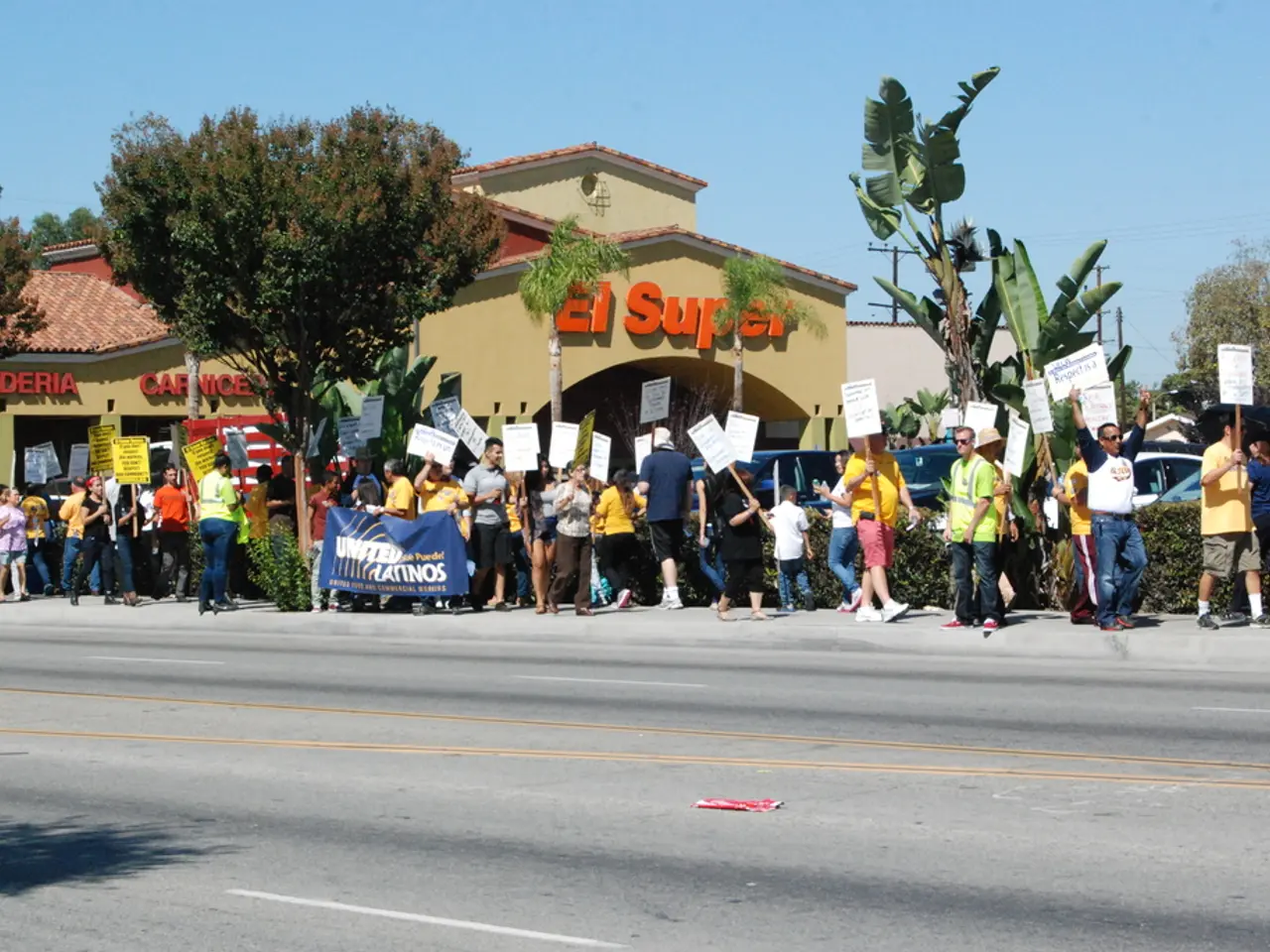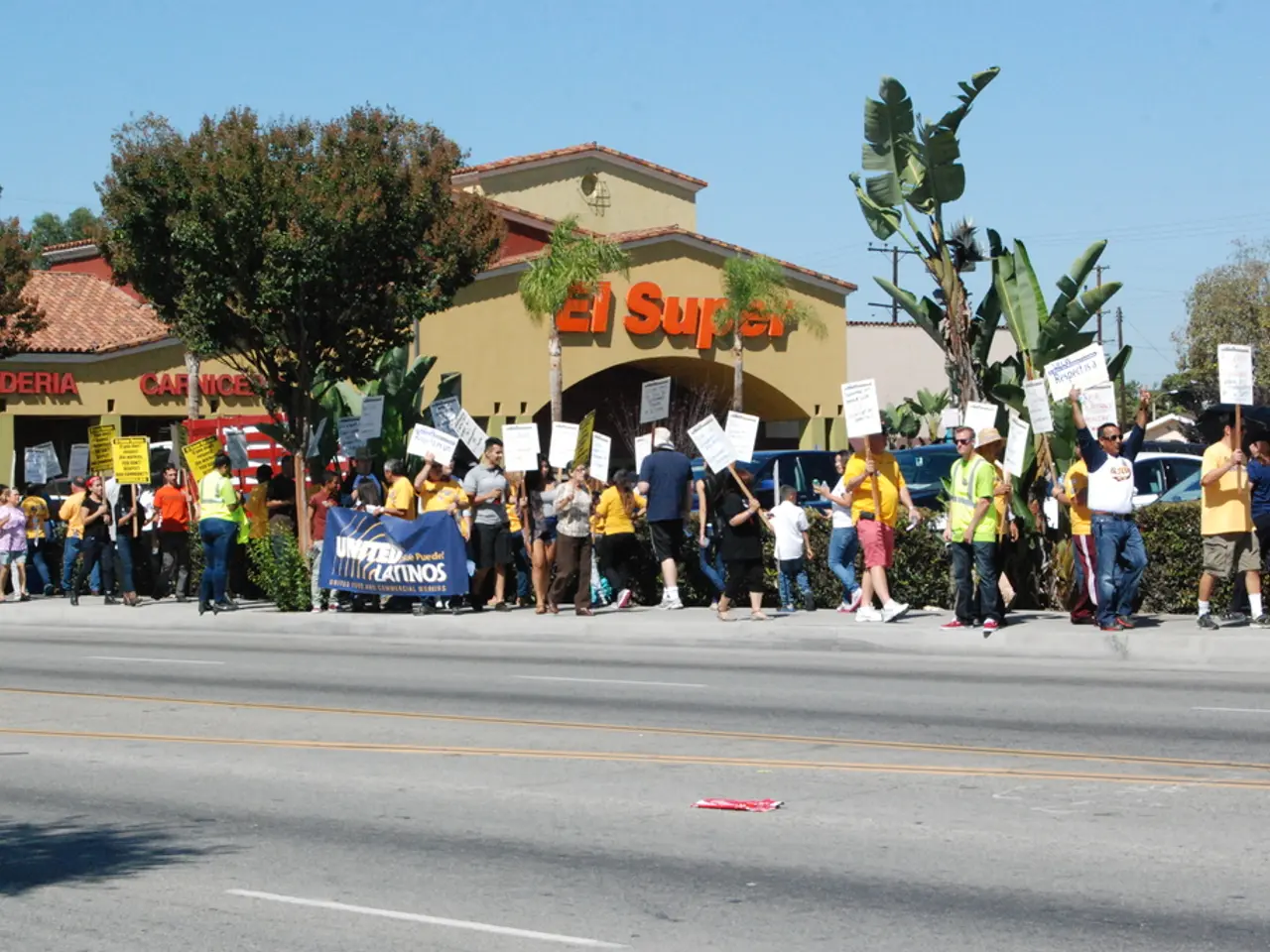Trump mulls over the possibility of repudiating Rosie O'Donnell's nationality, reviving a longstanding dispute.
In a surprising turn of events, President Donald Trump is contemplating revoking the U.S. citizenship of comedian Rosie O'Donnell, a move that has sparked a constitutional debate and raised questions about the limits of the government's power.
O'Donnell, who moved to Ireland shortly before Trump's inauguration in January, has been a vocal critic of the President since at least 2006. Their relationship has been marked by public clashes, with Trump referring to O'Donnell as a "real loser," "crude, rude, obnoxious, and dumb," and "a pig" over the years.
However, the Supreme Court has recognized constitutional limits and an entitlement to meaningful judicial review, even in cases of denaturalization or expatriation. This protection is rooted in the Constitution, particularly the landmark Supreme Court decision in Afroyim v. Rusk (1967), which affirmed that once a person has obtained citizenship, it cannot be revoked without their consent except in specific circumstances.
The Citizenship Clause of the 14th Amendment, another cornerstone of birthright citizenship, grants citizenship to all persons born or naturalized in the United States. Attempts to undermine this clause, such as President Trump's executive order, have faced legal challenges and are seen as unconstitutional.
Denaturalization, the legal process by which the U.S. government can revoke a person's citizenship, requires proving that the individual obtained citizenship illegally or fraudulently. This process must be conducted through a federal court, typically in civil litigation, not criminal proceedings. Denaturalization cases are civil, meaning the government has a lower burden of proof compared to criminal cases, but defendants do not have the automatic right to legal representation, which can leave them vulnerable.
Recent directives from the Department of Justice have elevated denaturalization to a priority, focusing on naturalized citizens deemed threats to national security or those involved in fraud. However, these actions have faced legal challenges, highlighting the ongoing legal battles over citizenship rights.
Coercive expatriation, or situations where individuals are forced to relinquish their U.S. citizenship involuntarily, is not legally permissible. Individuals who are denaturalized may become stateless if they do not have another nationality, which can lead to severe consequences, including removal proceedings.
Rosie O'Donnell has responded to Trump's threat, stating "you want to revoke my citizenship? go ahead and try, king joffrey with a tangerine spray tan." She has also claimed that the President "gut[ted] all of the early warning systems and the weathering-forecast abilities of the government," stymying the federal response during the Texas floods.
CNN has reached out to the White House about what prompted the President's threat, but as of now, no official response has been given. Meanwhile, O'Donnell has been welcomed with open arms in Ireland, stating that she feels right at home.
This latest development in the ongoing saga between Trump and O'Donnell raises important questions about the limits of the government's power and the protection of citizenship rights. The constitutional and legal complexities involved in denaturalization and coercive expatriation underscore the importance of due process and equal protection principles in these matters.
[1] Afroyim v. Rusk, 387 U.S. 253 (1967) [2] Trump v. Hawaii, 585 U.S. ___ (2018) [3] INS v. Stevic, 483 U.S. 202 (1987) [4] United States v. Wong Kim Ark, 169 U.S. 649 (1898)
- The constitutional debate sparked by President Donald Trump's contemplation of revoking Rosie O'Donnell's U.S. citizenship revolves around the limits of government power, a concern rooted in the Constitution, as affirmed in landmark Supreme Court decisions such as Afroyim v. Rusk (1967).
- The relationship between President Trump and comedian Rosie O'Donnell extends beyond politics to pop-culture and general news, with their public clashes and conflicting viewpoints influencing the realm of entertainment.
- The Citizenship Clause of the 14th Amendment, a cornerstone of birthright citizenship, grants citizenship to all persons born or naturalized in the United States, a right that is essential to maintaining the diversity and richness found in the intersection of war-and-conflicts coverage, politics, celebrity gossip, and various aspects of pop-culture.








